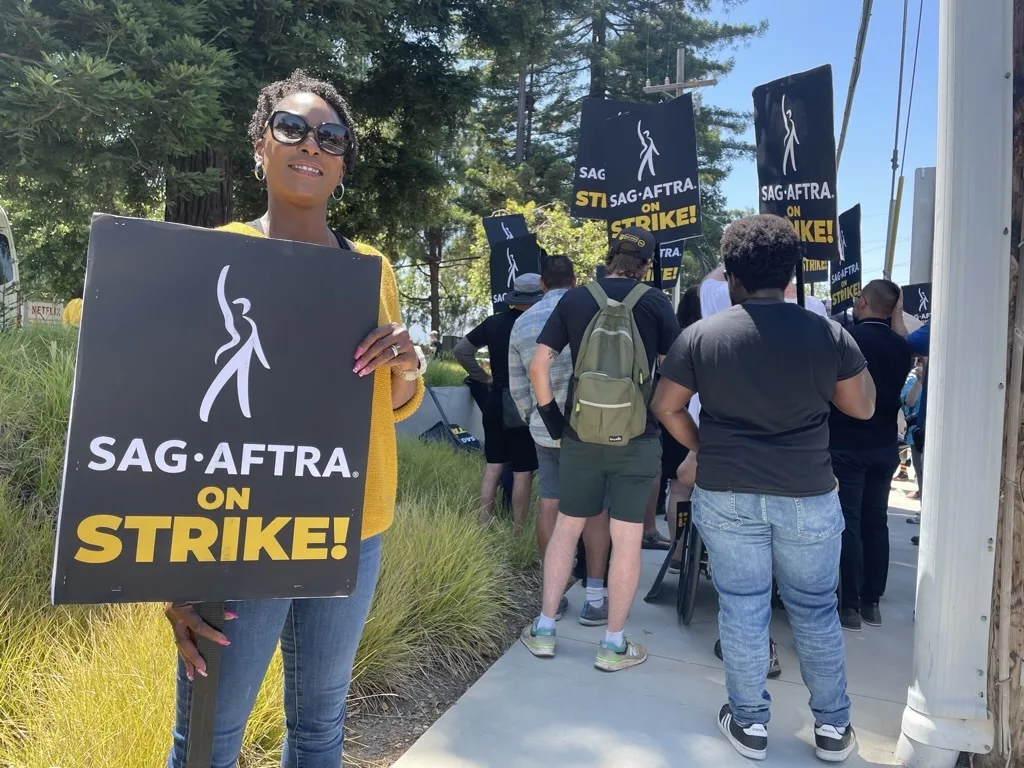Last year, Sarandos made $50 million. That’s not nearly as much as the highest-paid CEOs in the U.S., but the storyline of executives making billions while rank-and-file creatives suffer sticks in the craw of Writers Guild of America member Paola Tapia-Limón of Los Angeles. The WGA has been on strike since early May. “My last episode aired a while ago, and I did get residuals. But it’s still a ridiculous amount,” she told KQED.
Even during what’s been called the “golden age” of streaming TV, with the rise of the writer-producer, compensation for most writers has stagnated, according to the WGA.
She added that this has been happening just as Hollywood finally began to diversify in a meaningful way, allowing people like Tapia-Limón to build a middle-class career. “The thought of leaving the industry has definitely crossed my mind in my darkest moments. I’m not going to lie. But I also worked really hard to get here. It’s been over a decade, and I’m a little stubborn,” she said.
What’s different about this struggle
Hollywood producers have played hardball in every labor conflict for more than a century. Tapia-Limón knows “fuzzy accounting” in this business predates the entry of Big Tech. But, Tapia-Limón says, for deep-pocketed companies like Apple and Amazon, entertainment is just one of many things they do.
“There’s always greed … people wanting to make the best products with the least amount of money. But … at least those people respected the art form. The tech companies, they don’t care. It’s just money to them,” Tapia-Limón said.

“It’s sociopathic. It doesn’t make any sense to me. We’re not asking for them to give up their billions,” said Jorge Rivera, vice chair of the Latinx Writers Committee for WGA West. But he added he thinks it’s a mistake to demonize Big Tech alone. Wall Street, he said, and its demand for exponential growth is also playing a major part in the economic disruption of Hollywood.
“You can’t just make a profit. You’ve got to grow that profit every year, and I don’t think that is a sustainable model for entertainment. Yeah, we can make billions a year, but can we multiply that by 100 every year? I don’t think so. That’s what they want,” Rivera said. This is in an era when people spend more time and money on video games than movies, and more time watching YouTube than any TV network.
So what happens next? By many accounts: artificial intelligence. Many writers and actors told KQED they fear they have a limited time before the big companies figure out how to minimize the human contributions to entertainment. The humans figure this is the last time they’ll be in a position to negotiate.

